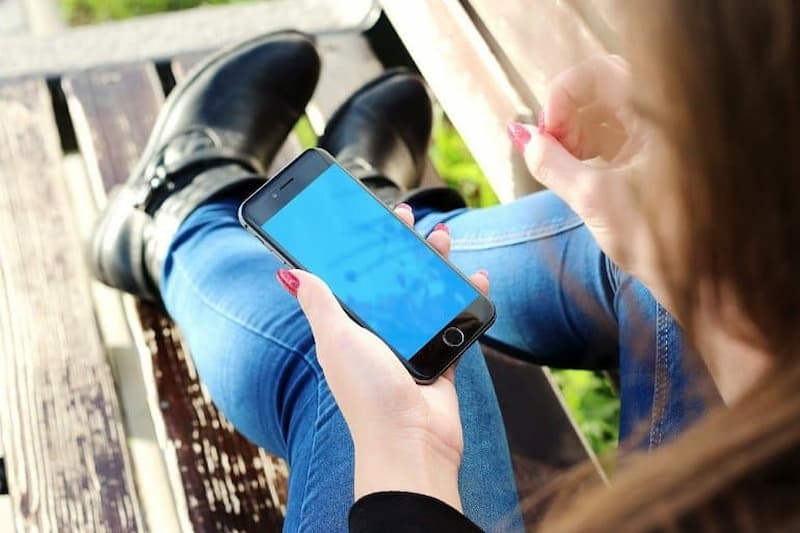(Neuroscience News) Smartphones have made multi-tasking easier, more understandable, and at times compulsive. But in social settings, these devices can lead to a form of contemporary rudeness called phone snubbing, or phubbing, the act of ignoring one’s companions to pay attention to a phone.
Related The Totalitarian Undertow of Social Distancing
by Staff Writer, August 9th, 2021
While it may be commonplace, snubbing one’s friends (Fphubbing) can have serious repercussions on relationships, and there are a variety of factors that may drive individuals to ignore their friends in favor of an electronic screen, according to a new University of Georgia study.
The study reveals positive associations between depression and social anxiety on increasing Fphubbing: depressed people are likely to phub their friends more frequently, and socially anxious people, who might prefer online social interactions to face-to-face communication, might also exhibit more phubbing behavior. Personality traits such as neuroticism also influence phubbing behavior.
“And of course, some people who have high social anxiety or depression are more likely to be addicted to their smartphone,” said Juhyung Sun, lead author on the paper who completed her master’s degree in communication studies at UGA.
The very ordinariness of phubbing suggests some fundamental insights about how technology interrupts social interactions – and how quickly they are accepted, if not embraced.
“I observed that so many people use their phones while they are sitting with their friends at the cafe, any dining time, regardless of the relationship type,” said Sun, currently a doctoral candidate at the University of Oklahoma.
She first considered some negative reasons behind phubbing – smart phone addiction and relatedly, the habit of constantly reading notifications that pop up onscreen.
“People are really sensitive to their notifications. With each buzz or sound, we consciously or unconsciously look at our phones,” she said, noting that the device’s wide utility across applications – from weather to breaking news, are key drivers fostering this dynamic.
A third significant finding in the study revealed that agreeable individuals have a lower instance of phubbing in the presence of their friends. People who have agreeableness as a personality trait tend to show cooperative, polite and friendly behaviors in their interpersonal relationships and social settings, Sun said.
“They have a high tendency to maintain social harmony while avoiding arguments that can ruin their relationships.,” she said. “In face-to-face conversations, people with high levels of agreeableness consider phubbing behavior rude and impolite to their conversational partners.”
And though agreeable people may prioritize strong friendships, an exploratory study by the researchers revealed phubbing also to be more likely in the presence of three or more people.
That dynamic may influence the prevalence of phubbing in the context of a work environment
“It’s ironic that while so many people believe that phubbing behavior is rude, they still do it,” Sun said. “A majority of people phub others, and in a group, it may seem OK, because it’s just me, the speaker doesn’t notice I’m using the phone. The number of a people in a group can be one reason.”
Alternately, disabling or turning over a phone can indicate a show of respect for a situation and focus on a person.
“That, too, is a signal – I am listening to what you are saying, this meeting is important and I am focusing on you,” Sun said.
Jennifer Samp, professor in the UGA Franklin College of Arts and Sciences department communication studies and Sun’s advisor on the project, believes that the act of Fphubbing may have even greater implications once the larger public returns to face-to-face interactions after the pandemic subsides.
“People relied heavily on phones and other technologies to stay connected during the pandemic,” Samp said. “For many, staying connected in a more distanced manner via texts and video messaging was more comfortable than face-to-face interaction. Will people – particularly anxious ones – still phubb when physically reunited? Time will tell.”
Stillness in the Storm Editor: Why did we post this?
The news is important to all people because it is where we come to know new things about the world, which leads to the development of more life goals that lead to life wisdom. The news also serves as a social connection tool, as we tend to relate to those who know about and believe the things we do. With the power of an open truth-seeking mind in hand, the individual can grow wise and the collective can prosper.
– Justin
Not sure how to make sense of this? Want to learn how to discern like a pro? Read this essential guide to discernment, analysis of claims, and understanding the truth in a world of deception: 4 Key Steps of Discernment – Advanced Truth-Seeking Tools.
Stillness in the Storm Editor’s note: Did you find a spelling error or grammatical mistake? Send an email to [email protected], with the error and suggested correction, along with the headline and url. Do you think this article needs an update? Or do you just have some feedback? Send us an email at [email protected]. Thank you for reading.
Source:
https://neurosciencenews.com/phubbing-depression-neuroticism-19092/
Support our work! (Avoid Big Tech PayPal and Patreon)DIRECT DONATION

Leave a Reply